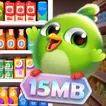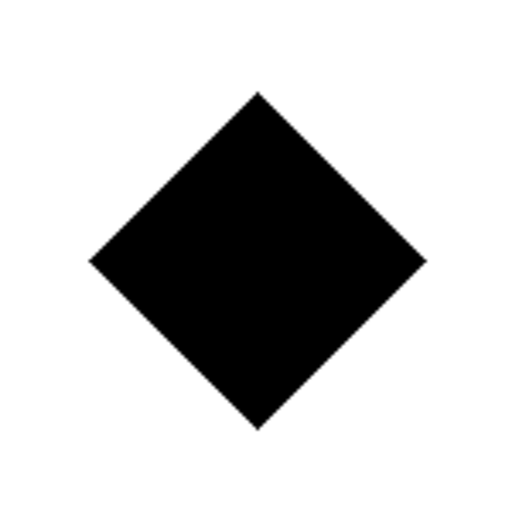How to Get Good Use of Calendar Apps
In today's fast-paced world, Digital tools have become essential for staying on top of personal and professional responsibilities. Among them, calendar apps stand out as powerful allies in achieving better time management, productivity, and balance. This post, How to Get Good Use of Calendar Apps is designed to help you not only choose the right calendar app for your needs but also get the most out of it—turning a simple scheduling tool into a productivity powerhouse!
★ Introduction: Why Calendar Apps Matter More Than Ever
Calendar apps offer real-time updates, notifications, sharing capabilities, and cross-platform syncing. Whether you're a student juggling classes, a professional handling back-to-back meetings, or a parent trying to manage family events, a calendar app can help you regain control over your schedule. Despite their availability, many users don’t fully leverage the features that calendar apps offer. Often, people limit themselves to just marking appointments or meetings, when in fact, these apps can:
- Help you prioritize and plan your day/week/month more effectively
- Improve accountability and punctuality
- Boost productivity through structured routines
- Enhance team collaboration via shared calendars
- Reduce stress and forgetfulness through reminders and alerts
Let’s start by identifying how to choose the right app before we dive into maximizing its potential.
★ How to Choose the Right Calendar App
Not all calendar apps are created equal. Each comes with unique features and limitations. Choosing the right one is the first step toward making it work effectively for you.
1. Define Your Needs
Ask yourself the following:
- Do you need it for personal use, professional scheduling, or team collaboration?
- Are you managing multiple calendars (work, personal, family)?
- Do you need task management integration?
2. Consider Platform Compatibility
- Is the app available on all your devices (iOS, Android, Windows, macOS)?
- Does it sync across platforms in real time?
3. Ease of Use
- Is the interface user-friendly and intuitive?
- Can you add, edit, or move events quickly?
- Is there voice command support (e.g., via Google Assistant or Siri)?
4. Feature Set
Look for features that go beyond basic scheduling:
- Recurring event support
- Color-coding for categorization
- Shared calendars
- Time zone support
- AI scheduling assistance
- Natural language input (e.g., “Lunch with Sarah next Friday at 1 PM”)
5. Integration with Other Tools
- A great calendar app should integrate with:
- Email (Gmail, Outlook)
- Task management tools (Todoist, Trello, Asana)
- Communication tools (Slack, Zoom, Microsoft Teams)
6. Offline Access
- Does it let you view and edit your calendar without internet?
7. Privacy & Security
- What kind of encryption and data protection does it offer?
- Can you control who sees what?
★ How to Get Good Use of Calendar Apps (01):
Once you’ve selected your app, the next step is mastering how to use it effectively. Here are detailed tips and strategies to help you maximize the value of your calendar app:
1. Plan Ahead with Time Blocking
- Allocate specific time slots for different activities (work, meetings, breaks, exercise, etc.)
- Stick to blocks as closely as possible to build discipline.
- Example: 9–11 AM: Deep work | 1–2 PM: Emails and admin
2. Use Categories and Color Coding
Assign different colors for various life areas:
- Red = Meetings
- Blue = Family
- Green = Personal goals
- Yellow = Learning
- Helps you visually balance your day or week.
3. Set Reminders and Alerts Wisely
- Use multiple alerts for critical events (e.g., 1-day before + 10-min before).
- For habits or recurring tasks, set daily/weekly alerts.
- Customize alert tones for different types of events.
4. Leverage Recurring Events
- Automate regular events (weekly team meetings, bill payments, gym sessions).
- Saves time and reduces the risk of missing recurring responsibilities.
5. Integrate To-Do Lists with Your Calendar
- Use calendar/task integrations (e.g., Google Tasks, Todoist + Google Calendar).
- Convert to-dos into time slots for execution.
- Example: Instead of a vague "Write report," block 2 PM–3 PM: "Draft Q2 report".
6. Use Natural Language Input
- “Dentist appointment next Tuesday at 10am”
- “Call mom every Sunday at 6pm”
- Saves time compared to manually selecting dates and times.
7. Share Calendars for Better Collaboration
- Share calendars with family or coworkers.
- Allow others to see your availability to reduce scheduling back-and-forth.
- Use view-only access when necessary for privacy.
8. Set Goals and Track Progress
- Use your calendar to block time for personal growth (e.g., reading, learning new skills).
- Review your calendar weekly to see if you’re dedicating enough time to priorities.
9. Review and Reflect Weekly
- Spend 15–30 minutes each week to:
- Review past week’s accomplishments
- Adjust upcoming plans
- Cancel or reschedule low-priority meetings
10. Use Widgets and Desktop Views
- Add calendar widgets to your phone’s home screen or desktop.
- Ensures quick visibility without needing to open the app.
11. Automate Scheduling (for Professionals)
- Use tools like Calendly or Google Meet integration to automate appointment booking.
- Automatically block off time based on availability.
- Reduces email ping-pong and double-booking.
12. Respect Your Calendar
- Treat calendar entries like real commitments.
- Avoid constantly rescheduling unless absolutely necessary.
- Builds trust in your system and keeps you reliable.
★ How to Get Good Use of Calendar Apps (02):
★ How to Get Good Use of Calendar Apps (03):
★ How to Get Good Use of Calendar Apps (04):
★ How to Get Good Use of Calendar Apps (04):
★ Conclusion:
When used effectively, a calendar app is far more than a digital notepad. It’s a time compass—pointing you toward your goals, helping you stay on course, and navigating around distractions and chaos. Whether you’re managing deadlines, carving out time for self-care, or coordinating with others, mastering your calendar can drastically improve your life. Start by choosing a calendar app that aligns with your needs. Then, commit to using its features regularly and strategically. The more you rely on your calendar as a proactive planning tool rather than a reactive reminder, the more control you’ll gain over your time, energy, and focus.
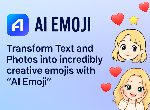
Meet AI Emoji, your go-to AI-powered emoji maker that lets you turn words and pictures into expressive emojis in seconds. Powered by the latest artificial intelligence, it analyzes your input and instantly creates personalized emojis that match your mood,
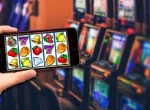
Mobile slot games are some of the most popular and addictive games in the app stores today. With just a tap, you could unlock massive jackpots, exciting bonus rounds, and endless entertainment. But here’s the catch: while slots are primarily games of ch
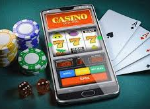
From slot machines to poker, mobile casino games have brought the glitz and thrill of Las Vegas into the palm of your hand. They’re fast, flashy, fun—and with the right knowledge, potentially rewarding. But winning consistently isn’t about luck alon
Latest Apps
Trending top 10

May 30, 2025

May 30, 2025

May 30, 2025

May 29, 2025

May 29, 2025
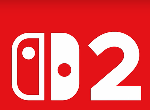
May 29, 2025
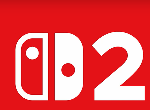
May 29, 2025

May 29, 2025


